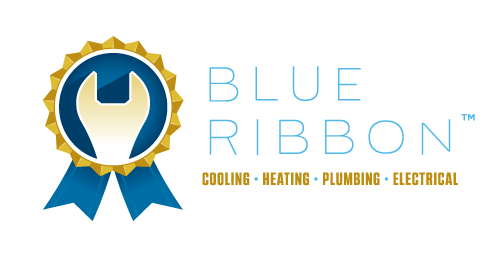That’s a Resounding “No” — Learn the Different Types
We’ve made it through the worst of cedar fever season here in Bastrop County. But there are bound to be lingering effects for some allergy sufferers. This is one of the many reasons that providing your home with the very best in air filtration is so critical these days. In an era where COVID-19 has invaded our lives—and our homes, it is more important than ever to ensure a safe, healthy environment for our families. At Blue Ribbon, we recommend top quality air filters to boost the indoor air quality in your Bastrop County home. After all, the cleaner your air, the better life you can live! But if you’ve never considered the quality of your air filters before, you might have questions, such as: Are all air filters the same?
And that answer is a big “no.” Let us explain.
Different Air Filters Do Different Things
While it’s your air conditioner that keeps you cool, it’s the air filters in your system that determine the type of air you breathe in on a daily basis. While all air filters work to keep your air healthy and clean, some do more than others.
First, let’s explain air filter ratings. Air filters are rated from 1 to 20 on what is called the MERV scale. This acronym stands for minimum efficiency reporting values. The higher the number on the scale, the better the air filter is at removing indoor air particles. Now, let’s take a look at the different types of filters and the benefits of each.
HEPA filters
HEPA—which stands for high efficiency particulate air—filters are a great choice for those who suffer from allergies. So, even with cedar fever season behind us, these filters are a great option for homeowners in Bastrop County. They can trap small particles, such as pollen, dander, smoke and dust mites, so that none of those pollutants makes it into your safe space. Recommended MERV scale rating: 7-13.
Fiberglass filters
Fiberglass air filters are fairly common options for many furnaces. And while they do a fine job of protecting your system from dust, they don’t do much to improve your indoor air quality. Advantages include the fact that they are inexpensive and also disposable. If you don’t suffer from respiratory issues, this is an adequate filter. Recommended MERV scale rating: 2-4.
Washable filters
Washable air filters are great because they can be reused again and again, but they typically only prevent large particles from entering your home. And while they are inexpensive and can last up to 8 years when cared for properly, they do have a tendency to develop fungus or bacteria after so many washings. Recommended MERV scale rating: 4
Electrostatic filters
Another filter that works well for allergy sufferers and those with respiratory issues is the electrostatic filter. These filters use an electromagnetic charge to grab particles, such as pet dander, dust and mold —all the pollutants that many allergy sufferers battle. Bonus: Some are even washable. Recommended MERV scale rating: 8-11
Ultra Violet (UV) Filters
When your goal is to zap away bacteria, mold and viruses in your home, UV filters are the best choice. While they are less efficient at filtering out dust and other small contaminants, they will fight micro-organisms and germs that can threaten your health. Recommended MERV scale rating: about 11
Pleated filters
These filters use a folded pattern (think accordion style) to capture small debris, such as pet dander, pollen and dust. Higher MERV ratings on pleated filters can sometimes also filter out bacteria and viruses. Recommended MERV scale rating: It depends. Ask us for details.
Which Air Filter Is Best for YOUR Home?
Ready to install some fresh, new filters? Great! If you’re still questioning the best type for your home, give our team at Blue Ribbon a call at 512.308.3515 to set up an appointment. We can advise you on the best option for your home depending on your situation. As always, Blue Ribbon is only a call away when you need heating and cooling advice or our outstanding services, such as an AC replacement in your Hays County home.
